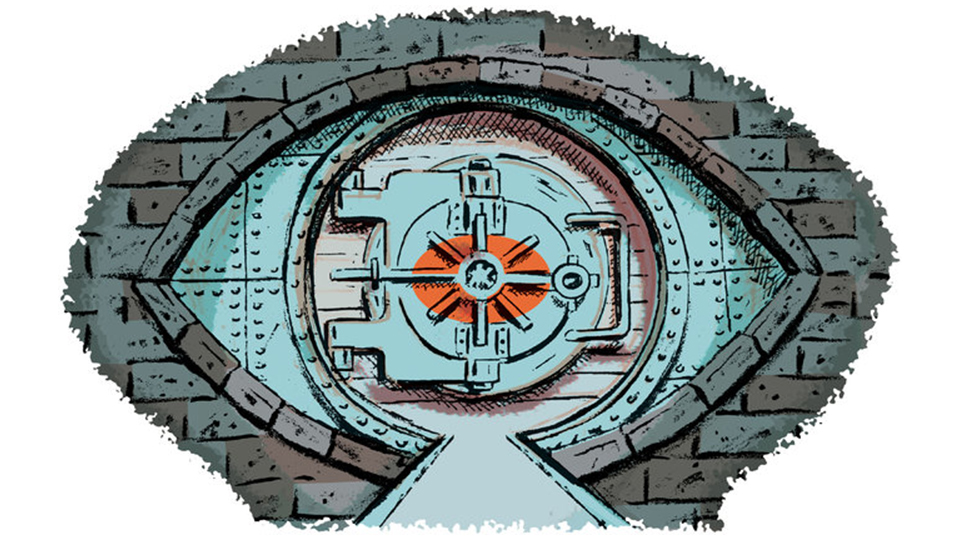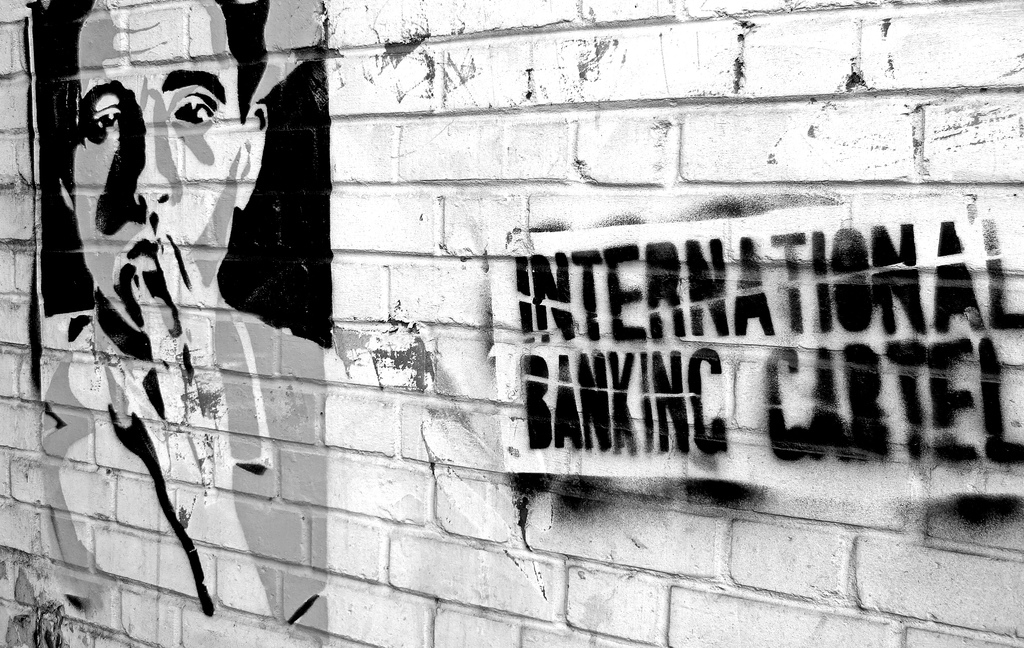
This is the second installment in a three-part series. Read the first part here.
The idea for an international bank had already been explored to some extent by people like the economist John Maynard Keynes. But the idea for the bank truly took off during the Young Conference in 1929, when the Allies were attempting to exact Germany’s reparations debts for WWI. Belgian delegate Emile Franqui bought up the possibility of having a settlement organization to administer the reparations agreement, and the very next day, Hjalmar Schacht, president of the Reichsbank and chief German representative at the conference, presented a proposal to establish just such an organization.
The Bank for International Settlements would act as a lender to the German central bank in case the German currency weakened and the government found itself unable to make the reparations payment. In addition, it would give steps for how to proceed in the case of German default. According to Simmons, “if Germany did not resume payments within two years, the BIS would propose revisions collectively for the creditor governments (which would only go into effect with their approval)” and “the bank was responsible for surveillance and informing the creditor countries about economic and financial conditions in Germany.”
The U.S. State Department had wanted a settlement to Germany's reparations woes, as economic adviser Arthur N. Young observed that "a final reparations settlement [would] promote both political and economic stability in Europe, and thus tend to be of advantage to the United States.” But the U.S. government as a whole didn’t want any type of linkage between reparations and war debts – due to the fact that, while each of the Allied nations were demanding reparations from Germany large enough to cover the country's debts to the U.S., having such a linkage would mean that “Germany's refusal or inability to pay that amount would put Washington in the position of having to agree to a debt reduction or bear the opprobrium and suffer the consequences of opening the door to financial chaos," according to Costigliola.
However, several other countries had their own interests in stake in the creation of the BIS. French Prime Minister Raymond Poincare promised the French public that the reparations would cover the country’s debts to both the U.S. and Britain, as well as cover the war damages. France was also interested in reaching an agreement on German debts, since they were developing trade interdependence with the Germans and stability was needed.
Britain also wanted to use the BIS as a means to ensure that the Germans would pay on their debts as scheduled. The Bank of England supported the creation of the BIS, wrote Simmons, “because of its potential role in stabilizing the position of the pound in the international monetary system. Britain's relatively small gold reserves made it difficult to defend the pound without international monetary cooperation and the willingness of smaller powers to hold foreign exchange as reserves instead of gold.”
The meeting in Baden, Germany, in October of 1929 to draw up final plans for the BIS saw the heavy presence of U.S. finance in the form of Melvin Traylor, from the First National Bank of Chicago, and Federick Reynolds, from the First National Bank of New York. There, the two men nominated Gates W. McGarrah, chairman of the board of the New York Reserve Bank, for the officer of BIS President. When the Bank of England leadership expressed anger, claiming the European public wouldn’t find the American domination of the Bank acceptable, they was effectively told that if they wanted American participation in the BIS, it would have to be on American terms. They agreed to appoint Pierre Quesnay of the Bank of France as the bank's general manager, and the BIS was officially founded on May 17, 1930.
A Rocky Beginning
The role of the BIS quickly changed with the onset of the Great Depression, when it became unable to “play the role of lender of last resort, notwithstanding noteworthy attempts at organizing support credits for both the Austrian and German central banks in 1931.” Due to the Depression and Germany's inability to pay, the issue of reparations went off the table. The crisis was further compounded when countries like Britain and the U.S. began devaluing their currencies (i.e. printing more money). The BIS attempted numerous times to end the exchange rate instability by restoring the gold standard, and according the bank itself, “the BIS had little choice but to limit itself to undertaking banking transactions for the account of central banks and providing a forum for central bank governors to help them maintain contact.”
During the Second World War, all operations at the BIS were suspended. The situation again became dicey for the Bank once the guns stopped firing. Immediately after WWII, the global economic landscape had massively changed; a new system was needed, and in July of 1944 over 700 delegates from the Allied nations met at the Mount Washington Hotel in Bretton Woods, NH, for the United Nations Monetary and Financial Conference, which “agreed on the creation of the International Monetary Fund (IMF) and an International Bank for Reconstruction and Development (BRD), which became part of the World Bank," writes Adam Lebor in his New York Public Affairs article "Tower of Basel."
Under the agreements, the IMF would pay attention to exchange rates and lend reserve currencies to nations in debt. A new global currency exchange system was created where all currencies were linked to the U.S. dollar and, in exchange, the U.S. agreed to fix the price of gold at $35 an ounce. All of this meant that there would be no need for currency warfare or manipulation, – proving a threat to the BIS, because if the IMF was to be the center of the new global financial order, what need any longer was there for a BIS?
Wilhelm Keilhau, a member of the Norwegian delegation, even went so far as to propose a notion to eliminate the BIS. However, several other European nations noted the bank's importance to finances on the European continent, and soon the move to eliminate it was rescinded.
Matters remained stable until the 1960s and 70s, but as the Bretton Woods system of “free currency convertibility at fixed exchange rates” coincided with a massive increase of international trade and economic growth, cracks began to show. The British currency was weak and, more importantly, the gold parity on the U.S. dollar was straining due to “an insufficient supply of gold and from the weakening of the U.S. balance of payments.” The Bretton Woods system collapsed in August of 1971, but the system of "managed floating" was created in its place, which allowed for flexibility of exchange rates within certain parameters. Later in the 1970s, the situation became still more dire with the creation of OPEC and the subsequent rise in oil prices, along with the Herstatt Bank failure.
The Herstatt Bank was central for processing foreign exchange orders, but German regulators withdrew the bank’s license forcing the bank to close up shop on June 26, 1974. Meanwhile, “it was still morning in New York, where Herstatt's counterparties were expecting to receive dollars in exchange for Deutsche marks they had delivered” and when Hersttat’s clearing bank Chase Manhattan refused to fulfill the orders by freezing the Herstatt account, it caused a chain of defaults. It was this problem that led to the creation, in conjunction with the G-10 countries and Switzerland, of the Basel Committee on Banking Supervision, whose goal was to set the global standard for bank regulation and to provide a forum for bank supervisory matters.
Yet this newly created stability was short-lived as well. Oil prices had quadrupled in November of 1973, leading to stagflation, an increase in balance of payment imbalances, and major shocks in international banking. The Euro-currency markets grew as they began to be utilized more and more by OPEC countries – and oil-producing nations invested in European money markets, greatly increasing the money of European banks, which they thus could lend.
The European Coal and Steel Community began loaning money to developing nations at a faster and faster pace, and while this was largely beneficial to the world economy at the start, “it also implied that the international banking system was faced with an increase in country risk,” as many of the countries receiving loans were also getting more and more into debt. This concerned the then-BIS economic advisor Alexandre Lamfalussy, who warned of a threat of a crisis specifically focused on credit, saying in a 1976 speech that from "[looking at] the continuous growth of credits, the spread of risks to a large number of countries, and the change in the nature of credits, I draw the conclusion that the problem of risks has become a very urgent one."
3 WAYS TO SHOW YOUR SUPPORT
- Log in to post comments













